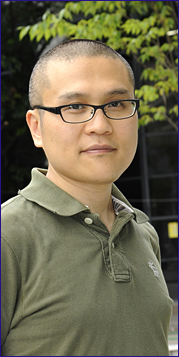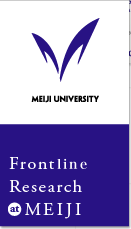

It is often said that manga is a reflection of its time, but in order to identify the characteristics of an era through manga, one must have a large amount of background knowledge. For example, the start of the story in the Norakuro, a 1931 manga that continued for 10 years, was the Manchurian Incident. However, the war was no longer portrayed from 1938 onward because the Home Ministry began regulation of children's stories. In other words, when real-life wartime activities came into full swing, manga did not reflect its era by fostering a war-promoting fighting spirit, but was instead repressed and became harmless. To properly understand the characteristics of the era in which this type of manga was published, one must first understand the social conditions, state of the printing industry and distribution, legal system, limitations on freedom of speech, degree of culutral tolerance regarding sexuality and violence, and other such factors from that time. While taking this methodology into consideration, I want to maintain a level of research sophistication that can criticize the simplistic and popular approach based on the idea that "this manga was popular, so it is probably representative of its time." Furhermore, because manga is a medium that does not delve deeply into historical aspects, I believe it is the duty of someone like myself, who researched manga in graduate school and became an instructor, to academically systemize my methodology and provide evidence of my data gathering methods, etc.
I Want Students to Acquire Knowledge and Thinking That Enables Them to Examine Issues from an International Perspective
The School of Global Japanese Studies strives to cultivate human resources who can examine Japan from an international perspective and utilize that perspective to transmit Japanese culture to the rest of the world. Because Japanese popular culture garnered much attention even overseas, six of the ten students involved in this area are exchange students from other parts of Asia. I want to graduate students to think about why things have become this way—why so many exchange students in Japan are from Asia and not Europe and the North America, and why Japanese students study in Europe and North America but seldom study in other parts of Asia. If these are considered to be caused by compound factors including global economic climate, balance of power, and cultural image, what proactive measures can be taken to change such conditions? I believe the purpose of studying at the graduate level is to acquire the knowledge and cognitive skills necessary to carry out such analysis. The faculty of the School of Global Japanese Studies have high levels of practical-level interest and many of them are active professionals, making the School an excellent educational institution for providing knowledge that can be put to practical use in society.Observation from Differing Perspectives Lead to Compassion and Open-Mindedness
I believe that breadth of mind and tolerance are necessary values for the coming age. Japan is in the midst of a long recession, and many people think of things in terms of whether or not they are financially profitable, but popular culture research is something that is meaningful even if it does not lead to financial gain. Furthermore, understanding Japanese culture and society from an international perspective helps bring about open-mindedness and compassion of difference. I would like all graduates to possess the "wisdom" needed to re-examine the very foundations of social value systems and provide alternatives when a society supported by an inadequate value system is not functioning well.Profile
Associate Professor of Popular Culture Studies, part of the Global Japanese Studies Program at the School of Global Japanese Studies, Meiji University.Associate Professor of Popular Culture Studies, Course of Global Japanese Studies at the Gladuate School of Global Japanese Studies, Meiji University.
Born in 1970 in Wakayama Prefecture. Member of the board at the Japan Society for Studies in Cartoons and Comics. Specializes in history of manga and representational culture theory. Publications include Manga no Ibasho ("A Place for Manga," co-authored, NTT Publishing) and Tanjo! "Tezuka Osamu" Manga no Kamisama o Sodateta Bakku-guraundo ("Birth! The Background Behind Upbringing of Deities in Osamu Tezuka's Manga," co-authored, Asahi Sonorama).









